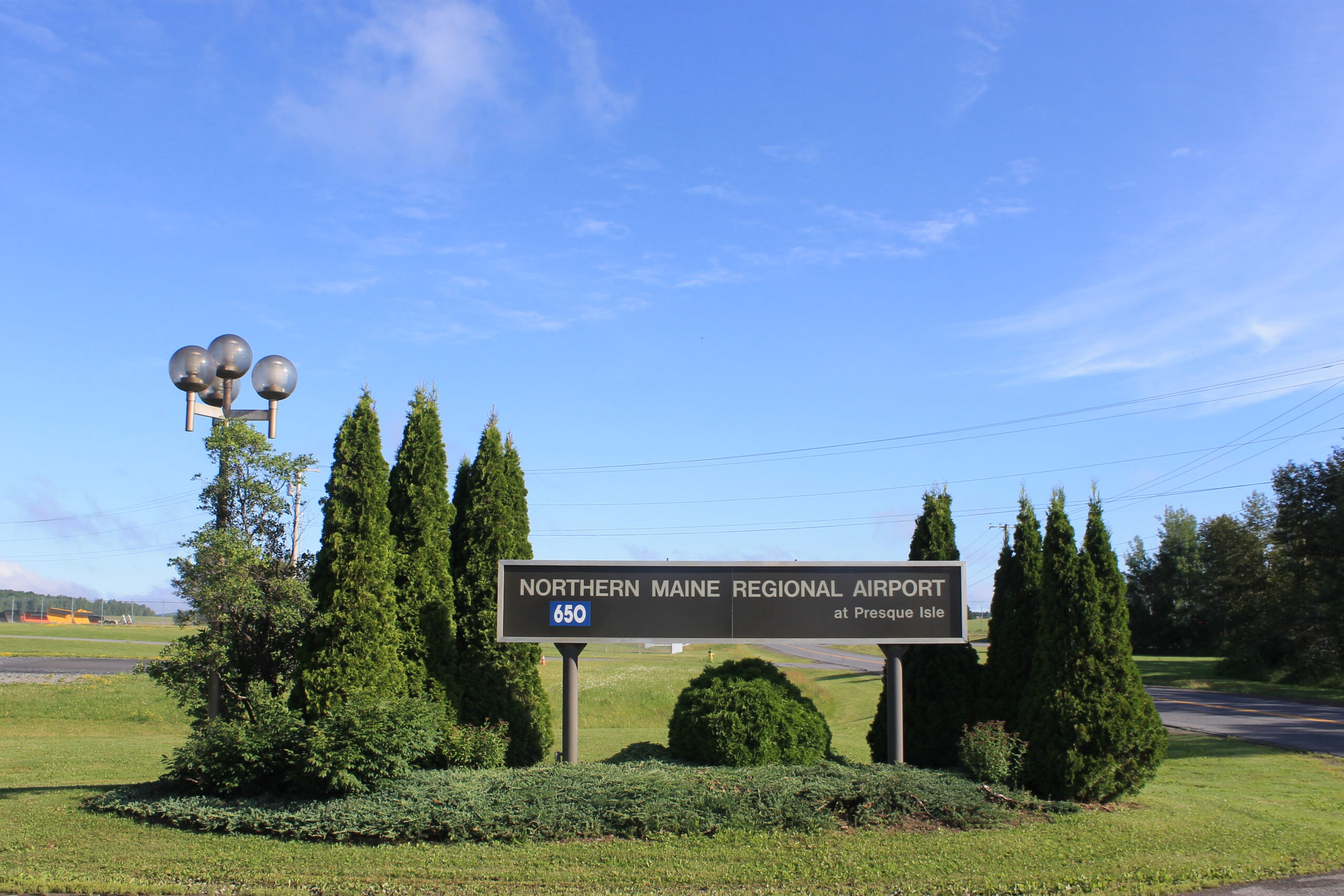
Tyler Player and his staff at the Presque Isle wood products engineering company Player Design regularly fly from Northern Maine Regional Airport to Boston and onto other locations to meet business clients.
The fact that an air travel option is available in central Aroostook County is “imperative” to the business, said Player, a Star City native who started the firm in 2008 to design equipment and machinery such as biomass burners.

Passengers board a morning flight from Presque Isle to Boston operated by Colgan Air on May 19, 2008. Colgan Air went bankrupt and was replaced in 2012 by Pen Air, which also receives funding from the Essential Air Service program to help operate the route. (BDN File photo)
“Our ability to function in Presque Isle would become incredibly complicated if they remove the service,” Player said, referring to a Trump Administration proposal to eliminate the federal Essential Air Service program that subsidizes regional airlines in 175 communities, including the Boston-to-Presque Isle route operated by Pen Air.
“We’d probably try to figure something out, but we wouldn’t be able to grow in Presque Isle,” said Player, whose firm employs 11 people out of offices in Presque Isle, Portland and Lincoln.
Northern Maine Regional Airport is one four Maine airports with airlines subsidized under the Essential Air Service or EAS program, along with the Knox County Regional Airport in Owls Head, Bar Harbor Airport in Trenton, and Augusta State Airport.
The airlines with flight service contracts at those four airports this year are receiving about $10 million under the EAS program. Almost half of that, more than $5 million, goes to Pen Air’s daily Presque Isle-Boston route, a roughly 1 hour, 15 minute trip serviced by a 33-seat Saab 340 aircraft.
The roughly $200 million EAS program was created in 1978 to help keep air service connections in rural regions after the the deregulation of the airline industry. The program is funded by fees paid by foreign aircraft flying over the United States and the Federal Aviation Administration’s Airport and Airways Trust Fund, according to the Regional Airline Association.
Player Design is one of a number of companies in Aroostook County with employees who regularly use the Pen Air service to Boston, said Theresa Fowler, executive director of the Central Aroostook Chamber of Commerce. Other local employers, she said, include The Aroostook Medical Center and Pines Health Services, MMG Insurance and Northeast Packaging, as well as multinational firms like McCain Foods.
Critics such as the libertarian Cato Institute argue that the EAS program was supposed to be temporary, and that it subsidizes an expensive form of transportation benefiting a relatively smaller number of business and wealthier individuals, with many flights being partly empty and some participating airports being within an hour of major hubs.
Fowler, though, argues that the EAS program is a lifeline in for Aroostook County, most of which is two hours away or more from the nearest international airports in Bangor and Fredericton, New Brunswick.
“The closure of the regional airport would result in loss of more businesses, loss of our young, energetic entrepreneurs and a loss in tourism,” Fowler said. “Many of the local sporting camps have their clients fly to Presque Isle and then transport them easily to their destination,” she added.
More than a few local businesses could “be forced to relocate their operations without the ability to fly from Presque Isle to Boston,” Fowler said.
Scott Wardwell, director of the Northern Maine Regional Airport, said he’s skeptical the EAS program will be cut, given that it’s been on the chopping block before.
One of the airlines that formerly served the region entered the EAS program in 2001, amid the wave of airline industry consolidation that made many regional routes unprofitable — one of the driving factors for airlines to enter the program, Wardwell said, along with the costs of federal safety regulations.
Receiving a subsidy under the program, Colgan Air ran the Presque Isle-Boston route until 2012, but then went into bankruptcy and dissolved, Wardwell said. Alaska-based Pen Air stepped in to operate the route under the EAS program.
Last year, 12,398 people flew on Pen Air, compared to the 30,000-plus boardings during the heydey of Aroostook County air travel in the 1980s and 1990s, when Delta operated 727 jet service and even the St. John Valley town of Frenchville had passenger air service.
Wardwell also makes the argument that the EAS program is crucial to the northern Maine economy. While individuals and families going on vacation or other trips might drive or take a bus to Bangor, Portland or Boston, “If you’re a business owner trying to complete in the global economy, you’re not going to do that.”







